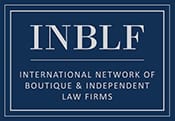Surprise: cosmetics regulation may increase
Eric F. Greenberg Attorney-at-Law
January, 2018
It seems wildly out of place, but there’s an effort underway in Congress to increase the regulatory burdens on a type of packaged product.
We live in a political climate where cutting back on regulatory actions of all kinds is a prominent theme, and entire agencies are being led by people who have expressed disgust with that agency’s core mission. That’s why it’s a surprise to learn that not one, but two bills are on the Congressional to-do list that would ramp up the Food and Drug Administration’s powers over cosmetics and place more burdens on those who package and sell cosmetics.
Though FDA regulates cosmetics and also foods, drugs, medical devices and several other types of products, for decades cosmetics have been its area of least intrusion. Cosmetics regulation is fundamentally a matter of voluntary compliance by industry, with FDA available to take enforcement action when safety or consumer deception issues arise.
But for at least the last decade, loud voices from NGOs and the legislature have called for tightening up. In fact, at least two prior discussions of this issue are squirreled away in this column’s archives.
Cosmetics, including deodorants, lipsticks, perfumes, shampoos, skin moisturizers, make-up, and hair color, are defined in the law as “articles intended to be rubbed, poured, sprinkled, or sprayed on, introduced into, or otherwise applied to the human body or any part thereof for cleansing, beautifying, promoting attractiveness, or altering the appearance,” plus components of any such articles, but not including soap.
The gist of the legal definition is that cosmetics are intended to change one’s appearance. When, on occasion, a cosmetics packager will assert in a labeling or advertising claim that its cosmetic will, for example, change the structure of your skin by removing wrinkles, why then has it shaded over into claiming to affect the structure or function of the body. It is therefore a ‘drug’ under the law, and an unlawful, unapproved new drug to boot.
Longstanding complaints that the current regime is not sufficient to assure cosmetic safety has led to the two proposals we see now. The bills are best viewed as competing alternatives, one a bit more of a burden on industry, the other less so, but both would be big changes.
The FDA Cosmetic Safety and Modernization Act, S.2003, from Orrin Hatch, senator from Utah, would require FDA to make Good Manufacturing Practices (GMPs) regulations for cosmetics makers. It would require FDA to annually identify cosmetics ingredients that ‘may present a public health concern,’ take other steps relating to ingredient safety findings, and preempt state or local governments from doing differently. It calls for industry to make reports to FDA of adverse reactions, would preempt any state or local adverse event reporting system, and require recordkeeping. It calls for new label statements to identify contact information to allow adverse reactions to be reported, and require facility registration, with a process for suspending it if FDA finds the products made there have ‘a reasonable probability of causing serious adverse health consequences or death.’
Alternatively, the Personal Care Products Safety Act, S.1113, introduced by senators Diane Feinstein of California and Susan Collins of Maine, would require FDA to make GMPs for cosmetics, require industry to keep records, allow FDA to inspect records and order recalls, and require fees to be paid by industry. It would require registration of makers or processors of cosmetics, and allow suspension of it if safety concerns arise. It also would require submission to FDA of cosmetic ingredient statements, require FDA to review the safety of ingredients, require manufacturers to make specific, written determinations of ingredients’ safety, and require reporting on serious adverse health consequences.
The Environmental Working Group supports the Feinstein-Collins bill. Industry advocacy group, the Personal Care Products Council, supports the Hatch bill, but has also issued its own ‘set of principles’ they want to see in any legislation, supporting requirements for manufacturers to substantiate ingredient and product safety and imposition of GMPs, and for FDA review of ingredient safety. They also want a ‘strong national program for the uniform FDA regulation of all cosmetics in the United States’ that preempts state and local efforts.
This is a common position for a trade group to take. On the broad topic of regulations, if one were to list industry preferences, first choice is often, but not always, that there be no regulation at all. Second choice, though, is a preference for a single federal set of regulatory requirements, provided they are reasonable, so that companies need only concern themselves with one national standard, not multiple state or even local requirements.
Still, it’s notable that even the trade group acknowledges the desirability of tighter controls.
As with any proposed legislation, it’s interesting to discuss what’s in it but might be meaningless if the bill doesn’t get finalized into law. It’s also tough to track the substance of any proposed law because so much of it can change during the law-making process. Add to that the vehemently anti-regulatory tone of most public policy discussions these days, and it’s harder than usual to predict the fate of proposals such as these.
And yet, the energy that inspired the two bills, and the evidence of legislative and even industry support, following years of loud NGO complaints that FDA lacks the powers and funding it needs and isn’t doing enough to assure cosmetic safety, create a perfect storm that could indeed, after years of attempts, lead to tougher cosmetics regulation. PW
Eric Greenberg can be reached at [email protected], or visit his firm’s Web site at www.ericfgreenbergpc.com.
This article is informational only and is not intended as, and should not be considered to be, legal advice.
Be sure to check for any updated information about the topics discussed in this article.


